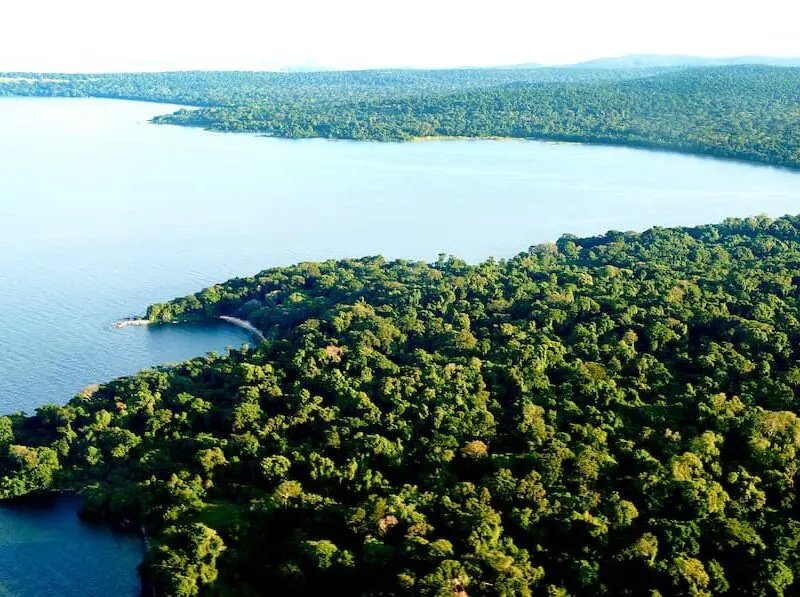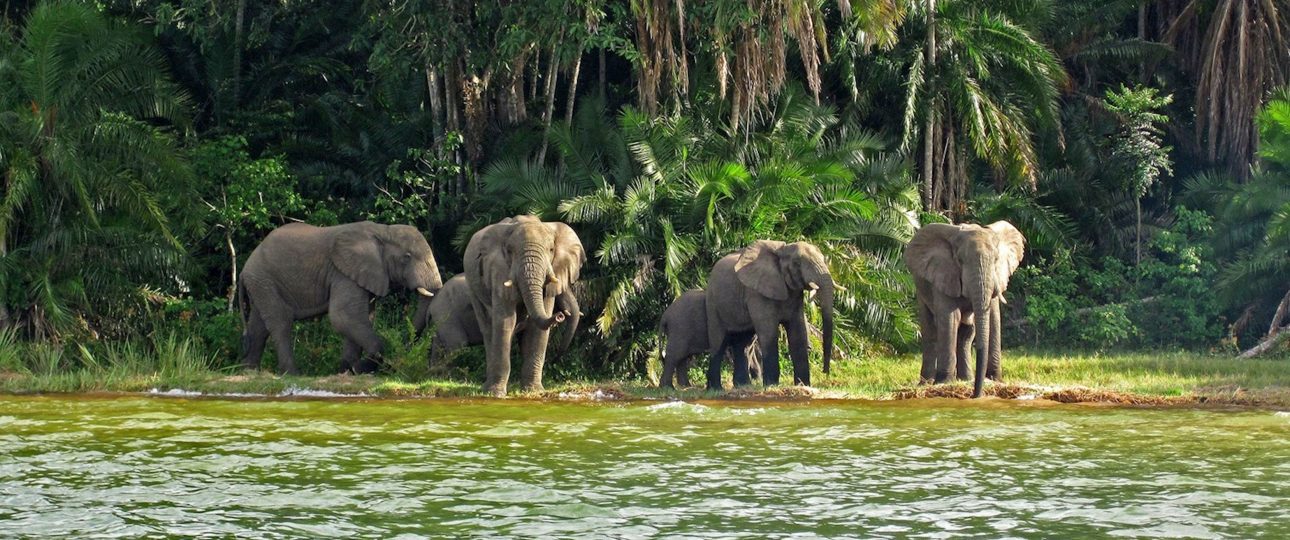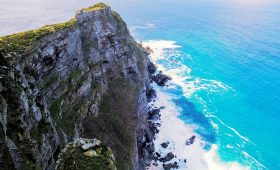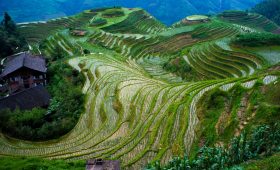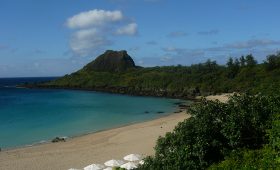Rubondo Island National Park: An Untamed Wilderness
Rubondo Island National Park, located in the southwestern corner of Lake Victoria, Tanzania, is an adventure waiting to happen. This park, spanning approximately 456.8 square kilometers, is a sanctuary for diverse wildlife and lush landscapes. Whether you’re a nature enthusiast or an adventure seeker, Rubondo offers a unique experience.
Geography and Climate
Rubondo Island is about 150 kilometers west of Mwanza and is the largest of the 11 islands that make up the national park. The main island is 237 square kilometers, featuring a mix of evergreen and semi-deciduous forests, open grasslands, and acacia woodlands. The eastern lakeshore is rocky with sandy beaches, while the western shore has extensive papyrus swamps lined with date palms. The island’s highest point, Masa Hills, rises to 1,486 meters above sea level.
The climate is characterized by a bimodal rainfall pattern, with peaks in December and April–May. The annual temperature ranges from 19 to 26°C, making it a comfortable destination year-round.
Wildlife and Conservation
Rubondo Island became a game reserve in 1965 and was designated a national park in 1977. It remains uninhabited, allowing 80% of the island to stay forested. The park is home to a variety of wildlife, including a population of chimpanzees introduced by Professor Bernhard Grzimek between 1966 and 1969. These chimpanzees, originally from West Africa, have adapted to their new environment and now live as wild animals.
Other introduced species include elephants, giraffes, black-and-white colobus monkeys, and grey parrots. Native fauna such as vervet monkeys, sitatunga, hippos, and bushbucks also thrive here. Birdwatchers will be delighted by the over 400 bird species, including kingfishers, fish eagles, and African grey parrots.
Best Time to Visit
The ideal time to visit Rubondo Island National Park is during the dry season, from June to October. During this period, wildlife is more active, and outdoor activities are more enjoyable. However, the park is open year-round, so you can plan your visit based on personal preferences.
Getting There
Reaching Rubondo Island is an adventure itself. You can take a ferry from Mwanza, offering scenic views of Lake Victoria, or opt for a short domestic flight to the island. Several airlines operate regular flights, providing convenient access for travelers from various parts of Tanzania and beyond.
Exploring the Park
Once on the island, there are numerous ways to explore its natural beauty:
Chimpanzee Trekking
Guided by experienced rangers, you can trek through the lush forests to observe chimpanzees in their natural habitat. Listen for their calls and watch for their playful antics in the treetops.
Game Drives
Embark on a game drive to spot elephants, giraffes, antelopes, and more. The park’s diverse landscapes offer plenty of opportunities for wildlife photography.
Birdwatching
With over 400 bird species, the park is a haven for birdwatchers. Bring your binoculars and explore the trails to spot colorful and rare birds.
Boat Safaris
Experience a boat safari along the shores of Lake Victoria. Keep an eye out for hippos, crocodiles, and a variety of bird species from a unique vantage point.
Accommodation
Rubondo Island National Park is a remote and untouched wildlife sanctuary on Lake Victoria in Tanzania. The only accommodation on the island is Rubondo Island Camp, a boutique lodge offering a small number of lakeside cottages and a unique treehouse. The camp provides a rustic yet comfortable experience with full-board meals, hot showers, and guided activities such as chimpanzee trekking, boat safaris, birdwatching, and forest walks.
There are no separate restaurants or shops on the island—guests dine exclusively at the lodge. The atmosphere is peaceful and immersive, ideal for nature lovers seeking privacy and adventure in an off-the-beaten-path setting.
Local Transportation
Guided tours and transfers are available, ensuring safe and informative explorations of the park’s flora and fauna. Rubondo Island Camp organizes professionally guided chimpanzee habituation walks, birdwatching safaris, boat excursions, catch‑and‑release Nile perch fishing, and scenic forest and savannah game drives. Transfers to the island—whether light aircraft flights from Arusha, Serengeti, or Dar es Salaam, or boat crossings from mainland points like Kasenda or Ngome—can be arranged directly through the camp’s operator, Asilia Africa, which also offers special flight-included packages for multi-night stays. All logistics and expert guides are coordinated to ensure a seamless, immersive experience in this unique wilderness (asiliaafrica.com).
